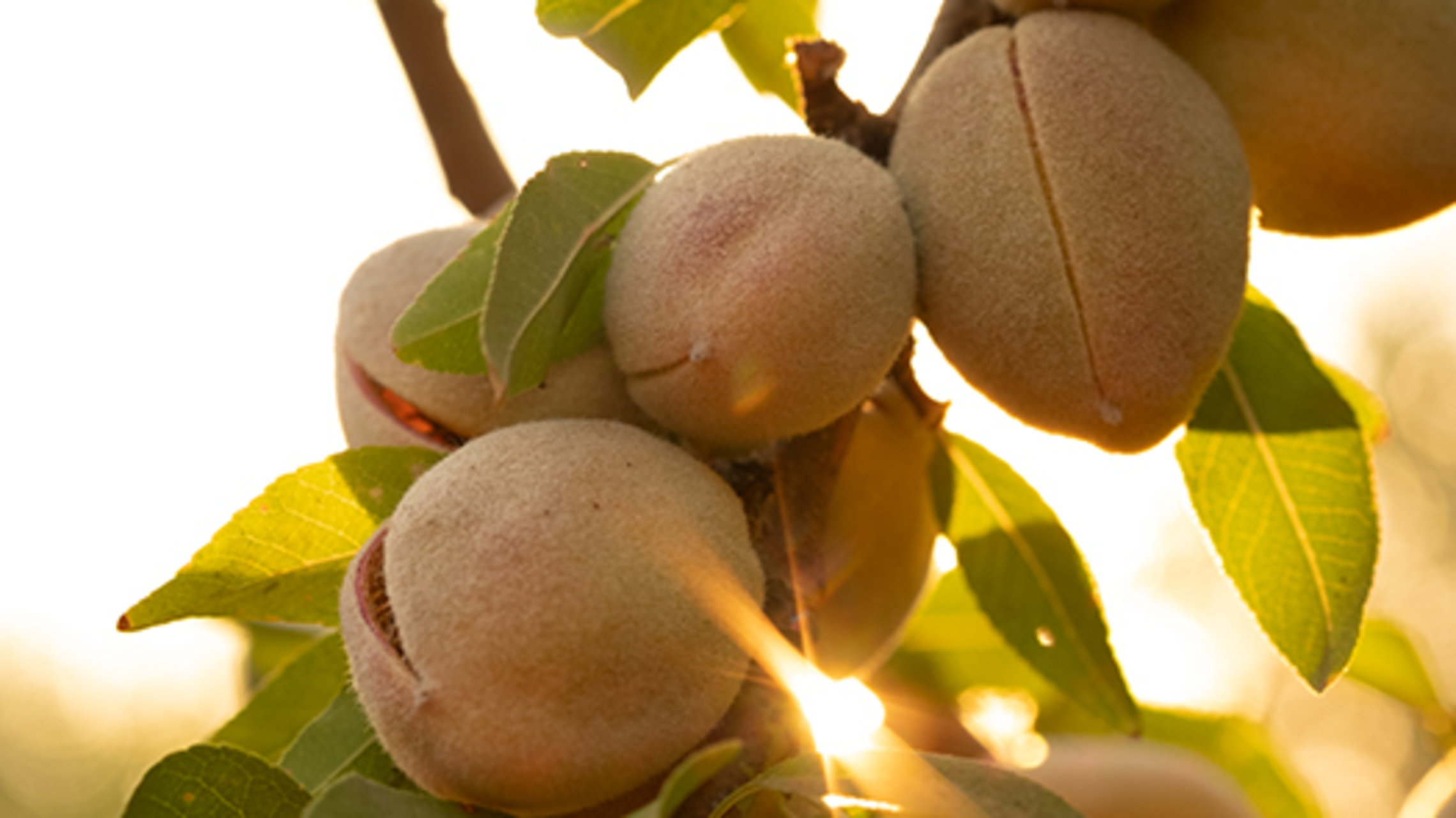Summer is coming: Is your almond disease control plan ready?

Heavy spring rains set the stage for Alternaria
With California exporting a record 2 billion pounds of almonds, it’s more important than ever for almond growers to achieve high levels of quality and production. In order to protect their investment, almond growers should have a plan for control of diseases such as Alternaria that threaten their crop.
If Alternaria is left uncontrolled, the resulting defoliation of trees can lead to immediate yield loss in the current year and compounded productivity losses in the years that follow.
This makes it important for growers to be aware of weather conditions that can be conducive to the disease. Heavy spring rains can set the stage for Alternaria development. The later it gets in the season, the stronger the threat of this disease grows due to extreme humidity brought on by irrigation systems running more consistently, along with thicker tree canopies.
“Heat and humidity help to breed the disease. Spring rains this year have brought the humidity, which is why it is so important to consider a preventative fungicide before high temperatures create even more conducive disease conditions,” said Leigh Ann Harrison, BASF Technical Service Representative. “Having a disease control plan that includes fungicide sprays to control Alternaria is crucial, especially if your orchard has a history of Alternaria pressure.”
Gather information before spraying
Before selecting a fungicide for summer applications for Alternaria, almond growers should monitor the weather in April and May for conditions that can be conducive to disease development. There is a higher likelihood of Alternaria infection with temperatures ranging between 60 and 85 degrees Fahrenheit, particularly in orchards with stagnant air or little wind movement.
If weather conditions are conducive to disease development, a preventative application is ideal, since Alternaria is difficult to control once symptoms start to develop.
Selecting an appropriate fungicide
A key step in managing Alternaria is selecting the right fungicide as part of a planned program that rotates fungicide modes of action. As a part of this disease control program, growers should invest in a fungicide that controls a wide spectrum of diseases early in the season. By doing this, growers can set a strong foundation for the year.
“We recommend Merivon® fungicide for control of a broad range of diseases that can impact almond trees, including Alternaria,” said Harrison.
Aside from providing broad-spectrum disease control, Merivon fungicide also provides Plant Health benefits to the crop, including stress mitigation against heat and drought, which can be important in arid conditions where almond trees may grow.
Resistance management
As with any product, growers should keep in mind best practices for resistance management. Strategies for effective resistance management include rotating different modes of action within a spray program, adhering to the label and achieving thorough coverage with sprays.
“Growers should be prepared to protect their investment in almond orchards by taking preventative measures to control it and following best practices for resistance management,” said Harrison.
Visit GrowSmartAlmonds.com to find out more about how Merivon fungicide works to control Alternaria.
Always read and follow label directions.
Merivon is a registered trademark of BASF. © 2019 BASF Corporation. All rights reserved.
About BASF’s Agricultural Solutions division
With a rapidly growing population, the world is increasingly dependent on our ability to develop and maintain sustainable agriculture and healthy environments. Working with farmers, agricultural professionals, pest management experts and others, it is our role to help make this possible. That’s why we invest in a strong R&D pipeline and broad portfolio, including seeds and traits, chemical and biological crop protection, soil management, plant health, pest control and digital farming. With expert teams in the lab, field, office and in production, we connect innovative thinking and down-to-earth action to create real world ideas that work – for farmers, society and the planet. In 2018, our division generated sales of €6.2 billion. For more information, please visit www.agriculture.basf.com or any of our social media channels.
About BASF
BASF Corporation, headquartered in Florham Park, New Jersey, is the North American affiliate of BASF SE, Ludwigshafen, Germany. BASF has more than 20,000 employees in North America and had sales of $19.7 billion in 2018. For more information about BASF’s North American operations, visit www.basf.com.
At BASF, we create chemistry for a sustainable future. We combine economic success with environmental protection and social responsibility. The approximately 122,000 employees in the BASF Group work on contributing to the success of our customers in nearly all sectors and almost every country in the world. Our portfolio is organized into six segments: Chemicals, Materials, Industrial Solutions, Surface Technologies, Nutrition & Care and Agricultural Solutions. BASF generated sales of around €63 billion in 2018. BASF shares are traded on the stock exchange in Frankfurt (BAS) and as American Depositary Receipts (BASFY) in the U.S. Further information at www.basf.com.
